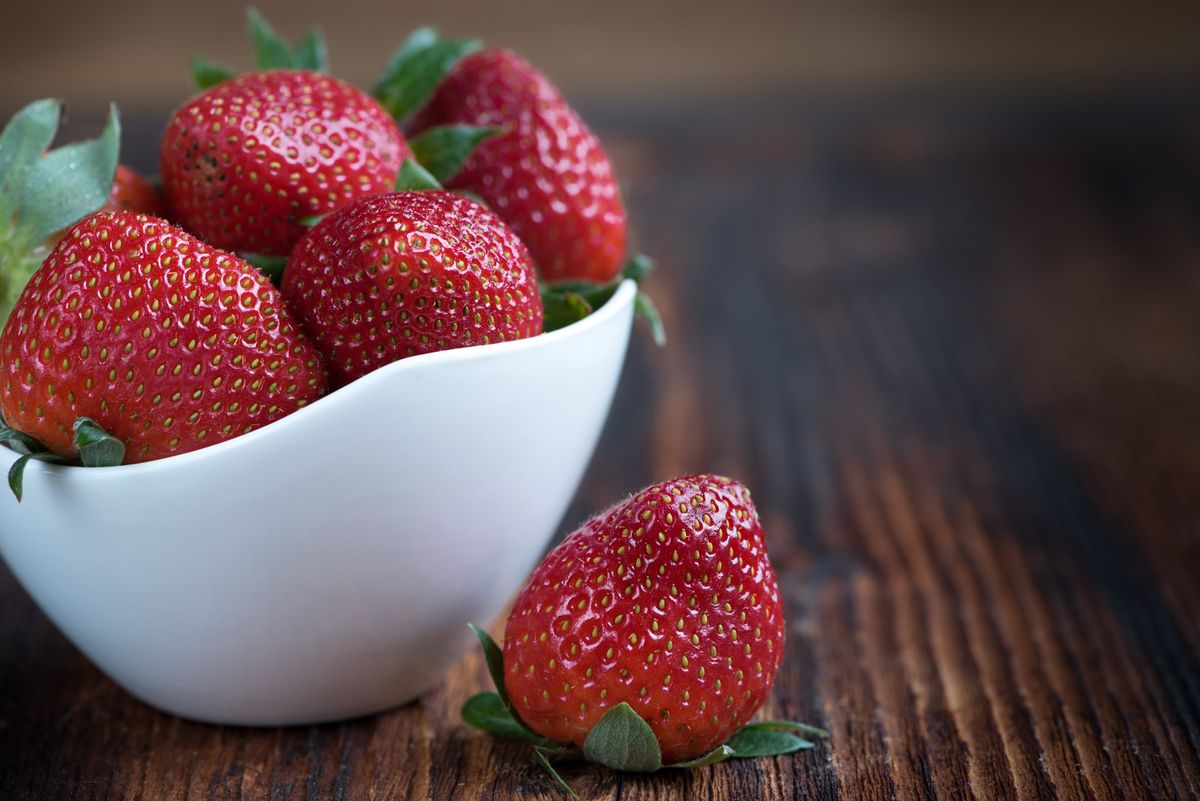Could strawberries be a key food for brain health?
In a new study, strawberries, in particular, have been shown to improve bad memory and symptoms of depression.

A few minutes every morning is all you need.
Stay up to date on the world's Headlines and Human Stories. It's fun, it's factual, it's fluff-free.
We all know that eating your fruits and veggies is good for your brain. But some foods are particularly important for brain health and power, like dark, leafy greens, fish, tea and coffee, nuts and berries. And certain foods might be beneficial for specific health results.
“It’s possible that eating a certain diet affects biological mechanisms, such as oxidative stress and inflammation, that underlie Alzheimer’s,” according to the US National Institute of Health. “Or perhaps diet works indirectly by affecting other Alzheimer’s risk factors, such as diabetes, obesity and heart disease.”
Because scientists don’t have all the info when it comes to the links between brain disease and diet, it’s a vast area of research at the moment.
“Dementia is a general term that includes many different diseases, all without remedies,” says Robert Krikorian, Ph.D., principal investigator and professor in the Department of Psychiatry at the University of Cincinnati Academic Health Center. “It is not clear when or if effective therapy will be available; prevention and mitigation through dietary and lifestyle choices is currently the best approach we have.”
In a new study, strawberries, in particular, have been shown to improve bad memory and symptoms of depression in middle-aged, overweight adults who’d reported signs of cognitive decline – dementia specifically.
Five men and 25 women were involved in the study. Half of the group consumed the equivalent of 1 cup of whole fresh strawberries in a freeze-dried powder form, and the other half consumed non-strawberry powder every day. Participants ate the powder every day for 12 weeks. The group that was given the strawberry powder made fewer “intrusion errors” when tested for cognitive decline than the non-strawberry group. The strawberry group also reported fewer depressive symptoms/better mood.
“Our findings can likely be attributed to the anti-inflammatory actions of the anthocyanins found in strawberries,” explains Professor Robert Krikorian of the University of Cincinnati’s Academic Health Center, who worked on the study. “We wanted to work with a middle-aged, overweight population as dementia is a condition that is believed to develop over a period of decades. Furthermore, inflammation is likely a contributing factor related to metabolic disorders such as obesity, pre-diabetes and type 2 diabetes. We are excited with these findings.”
Researchers hope that the results of this study can help them build on dementia prevention programs.




Comments ()